Principal Investigator
Locations
Study Code
Study Status
Abstract
Objective: The objective of this proposal is to study the immunologic effects of humanized FcR non-binding anti-CD3 mAb on immune responses associated with Type 1 diabetes (T1DM), and develop this therapy to prevent the immune destruction leading to beta cell loss.
Basis/Rationale: Studies of the natural history of T1DM indicate that 100% of individuals with the disease still make detectable insulin even after the first year of diabetes but lose the ability completely over the next 5 years. Retention of the ability to produce any insulin endogenously results in improved clinical control of the disease, and therefore, reduced secondary complications. In the NOD mouse, anti-CD3 mAb reversed hyperglycemia after presentation with hyperglycemia, induced long lasting protection from disease in the absence of continuous treatment and prevented recurrent diabetes in recipients of islet allografts. Pre-clinical studies of FcR non-binding anti-CD3 mAb suggest that the mAb selectively anergizes activated Th1 cells possibly by delivering an altered TCR signal. Th1 cells are thought to be involved in T1DM, and are most prevalent in the islet at the late stages of the disease, thus suggesting the basis for the efficacy of anti-CD3 mAb even after presentation. We have been conducting a Phase I/II trial of this agent in patients with new onset T1DM. The drug has been well tolerated and does not cause the toxicities of OKT3. Our studies have suggested a dosing regimen appropriate for Phase II trials and mechanisms that may account for the mAb effect.
Significance: The trial formally tests the hypothesis, that in man, T1DM can be arrested at a therapy directed against the T cell receptor. This drug may be of value for treatment of T1DM and prevention of its recurrence in islet allografts.
Relevance of Immune Tolerance: In mouse studies, the drug induces tolerance to T1DM. This study will test the same in man, and develop a protocol that will maintain tolerance to islet cells.
Clinical Protocol Summary: In this Phase II protocol, two courses of the mAb will be administered 1 year apart. This protocol differs from the ongoing Phase I, single treatment protocol in that the second administration of the mAb is utilized to amplify the effects of the mAb in a manner analogous to "booster" shots with a vaccine. Clinical responses of the treated group (n=54) will be compared to untreated patients (n=27).
Mechanistic Studies: The planned mechanistic studies, included in this proposal are specific to questions pertaining to the immunologic effects in diabetes, and will determine how the drug works and how to best utilize it for treatment. The studies test three mechanisms to account for the actions of the drug. First, that pathogenic T cells are deleted from the repertoire by mAb treatment. Second, that the drug anergizes specific populations of T cells, most likely Th1/Tc1 cells including those cells responsible for islet antigen recognition. Third, that subpopulations of T cells activated by mAb (i.e. CD69+ or CD25+) represent a regulatory population that may inhibit the function and/or effects of autoimmune effector cells. In addition to these studies, samples and clinical information from this trial should facilitate studies using tolerance assays of the ITN.
